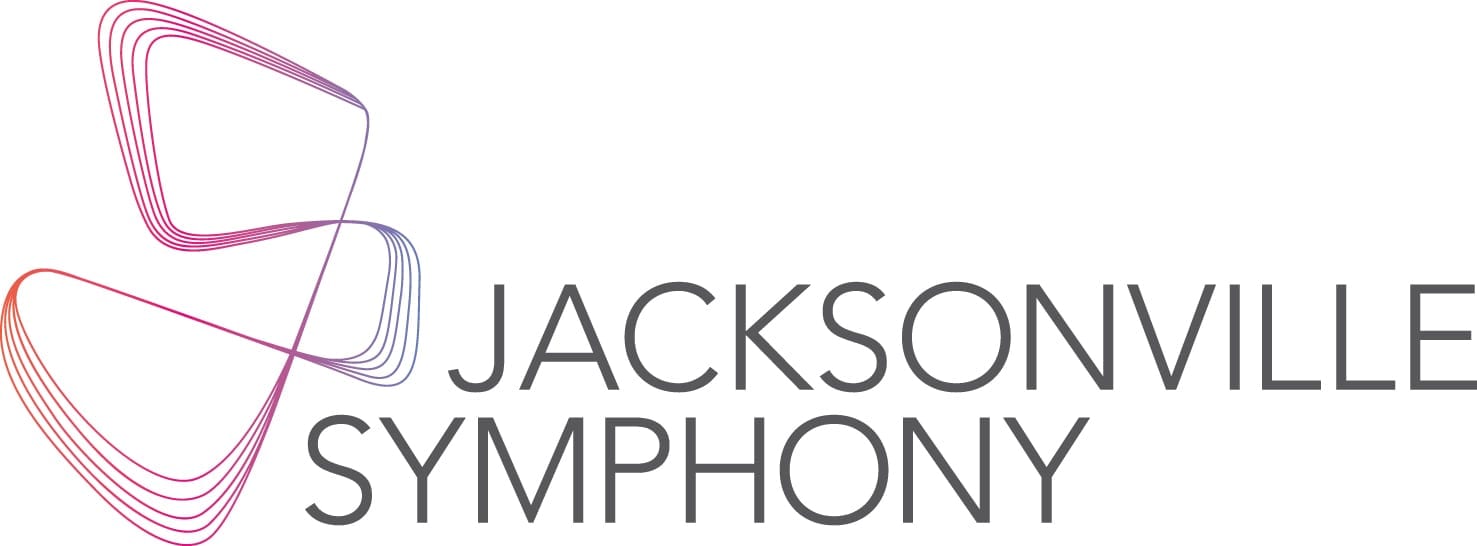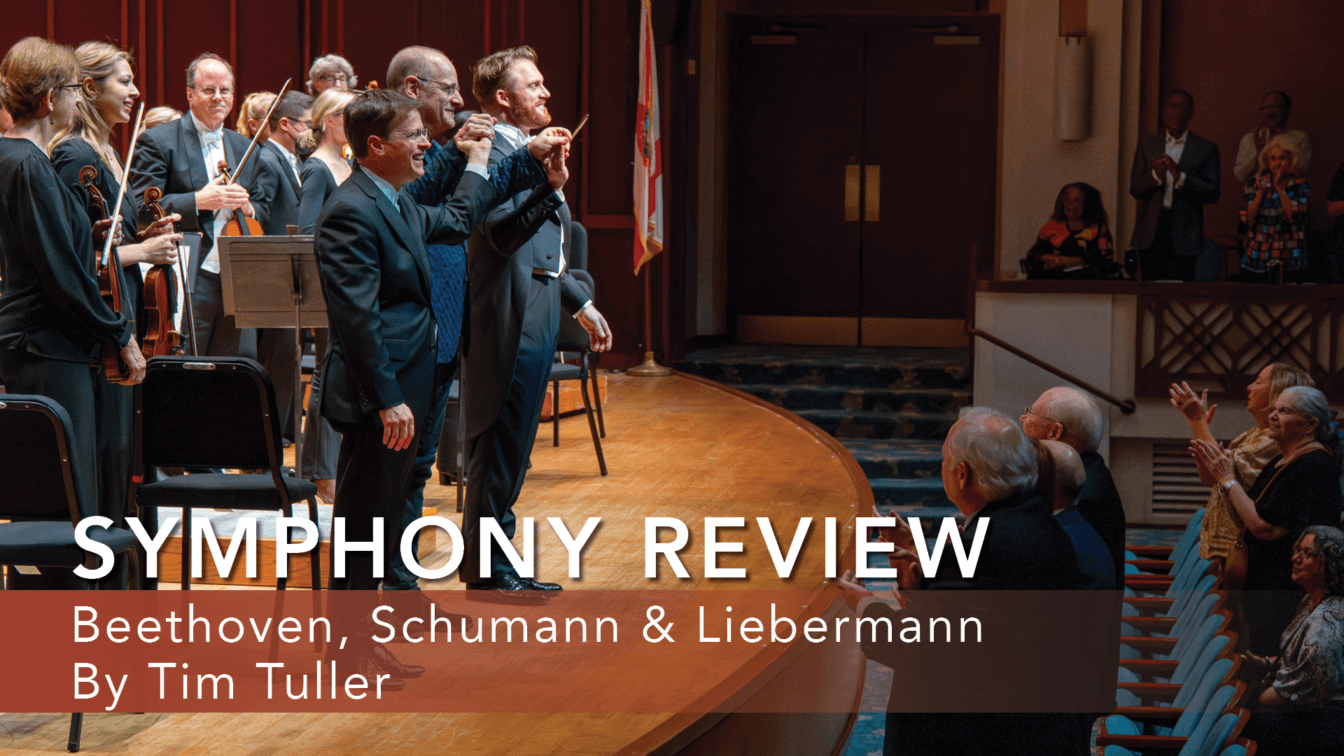Performance Review: Beethoven, Schumann & Liebermann
The Jacksonville Symphony’s Florida Blue Classical Series kicked off its 2023/24 Season in grand style this weekend with “Beethoven, Schumann & Liebermann,” a generous and groundbreaking program featuring the world premiere of contemporary American composer Lowell Liebermann’s Organ Concerto.
Leonore Overture No. 2, Op. 72a by Ludwig van Beethoven
After leading off with “The Star Spangled Banner,” Music Director Courtney Lewis and the Symphony dove into Ludwig van Beethoven’s Leonore Overture No. 2. From the opening timpani strike, it was apparent that the musicians were freshly rested from the summer break and eager to begin the new season with verve. Focus was tight, and the strings immediately displayed the warmth and lyricism that would underpin the entire evening.
Interested in learning more? Listen to Courtney Lewis speak about the program on Insight or explore a full set of Program Notes.
Organ Concerto, Op. 141 (world premiere, Jacksonville Symphony commission) by Lowell Liebermann
The centerpiece of the evening followed, Lowell Liebermann’s Organ Concerto, Op. 141 featuring soloist Paul Jacobs. Jacobs, who is chair of the organ department at the Juilliard School and the first organist ever to receive a GRAMMY® Award, has a strong claim to being the leading concert organist of his generation. Liebermann is likewise renowned as one of the most distinguished living American composers, and the collaboration between the two here made for a memorable musical event indeed. Liebermann, who was in attendance and addressed the audience prior to the performance, is a composer of wide–ranging influences, and his unique musical vocabulary displays an overarching lyrical sense. A formidable work in four movements, the concerto opened with chorale-like passages on the organ accompanied by lush passagework in the strings. The second movement had a Sergei Prokofiev-like driving energy that put the percussion section thoroughly through its paces and contained much daunting virtuosic passagework for the organ. The heart of the work seemed to me to be the “Aria.” This expansive movement gave Jacobs the canvas on which to exploit the kaleidoscopic color palette of the mighty Bryan Concert Organ to the fullest. I heard sounds from the instrument that I never have before. This movement led without pause into the final “Toccata,” which brought the concerto to a rousing conclusion and the audience immediately to its feet. Balance between the organ and Symphony was spot on throughout, and the work overall gave the impression of being not so much a concerto as a symphony for organ and Symphony, as both were equal partners and perfectly integrated in the texture throughout. While there was certainly virtuosity in spades, particularly in the second and fourth movements, creating a vehicle for empty technical display was clearly the furthest thing from Liebermann’s mind. It was, rather, a work that explored orchestral color, textural and melodic nuance and emotional subtlety.
Symphony No. 2 in C major, Op. 61 by Robert Schumann
Rounding out the evening was Robert Schumann’s Symphony No. 2 in C major, Op. 61. The musicians still had energy to spare bringing out the obsessive, driving rhythms of the first movement with unflagging intensity. A particular highlight for me was the second movement, the “Scherzo.” This notoriously difficult movement is a test for any symphony with its virtuosic passagework and challenging tempo changes. The musicians kept even the most frenetic passagework tightly together, and all was paced seamlessly by Lewis. The final movement brought the full sonority of the Symphony to bear, wrapping up an incredibly enjoyable evening that nobody in attendance will soon forget.
“Beethoven, Schumann & Liebermann” was a truly wonderful start to the concert season. It was a prime example of the brilliant programming that we have come to expect from Lewis and the Jacksonville Symphony in recent years. It combined the fresh interpretation of beloved classics with bold, new repertoire, which is so important for keeping symphonic music alive and culturally vital. If this concert was an indication of the season to come, music fans indeed have reason to celebrate.
Tim Tuller is the Canon for Music at St. John’s Episcopal Cathedral in Jacksonville, Florida. Tuller formerly wrote for the Florida Times-Union as the classical music reviewer.
Watch, Listen and Read
Interested in joining the Jacksonville Symphony for another innovative and engaging season? Please visit our 2023/24 Season page to learn more about the upcoming season’s programming. Additional content for this performance includes an episode of Insight and a full set of Program Notes. Looking for more content? Subscribe to our YouTube Channel to watch concert archives, interviews, behind-the-scenes content and more.
The Jacksonville Symphony would like to give special thanks to Florida Blue for sponsoring the Classical Series. Additional thanks are given to Tim Tuller for attending the performance and writing this performance review: Beethoven, Schumann & Liebermann.


